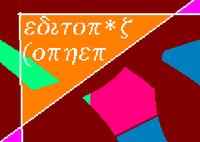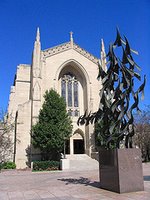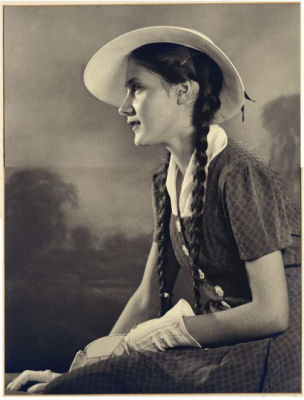 Exactly 1 year
Exactly 1 year after the meeting deciding BSBI’s location issue, another meeting of historic importance is about to be held involving potential changes to congregation BSBI.
This discussion in the
EC Forum is intended to look at the proposed amendments to BSBI’s constitution and by-laws in a level-headed way. Each of us needs to appraise the situation carefully, from the viewpoint of "the heart and the mind". We must try to maintain a positive outlook, and a sense of confidence and calm. Each of us must be fully in touch with our decisions and actions - and appraise their impact on our personal sense of growth and fulfillment.
Only one amendment really matters. It is in regard to the membership of the Board of BSBI. The proposed change will create 8 new positions on the board with full voting powers ( not to be confused with rights, but that is another matter.) These positions will be filled, not by
election from the congregation, but by
presidential appointment. In effect, BSBI’s democratic processes will be gutted.
True, it will take a 2/3 majority to pass this, but I have every confidence that those who have crafted these changes will make every effort to bring out their supporters to vote. Based on the turnout at the September 2006 meeting, where the new slate of officers was voted in by more than a 2/3 majority, I fully expect the amendments to be passed. The question is how to prepare for this.
__________________________
There are 3 important facts to focus on, when making your decisions about this:
1) that the New WAM provides choice
2) that BSBI does not fully support Orthodox observance
3) that change cannot be made from within BSBI
Choices for orthodox observance in Charleston:The establishment and initial success of the New WAM has brought to Jewish Charleston a wonderful thing - choice. I am deeply grateful for this, and my gratitude extends to all those who have made it happen, from the "heavy-hitters" to the "bench-warmers", from those who remain members of BSBI, to those who have resigned their membership, from those who serve this community at the JCC, to those who have rendered support from the background, from those who are learned enough to lead and lain, to those who come to share the warmth of our fledgling "community". I draw particular fulfillment from knowing that my participation has brought the blessing of choice to others in return. It is crucial that we nurture and sustain the New WAM so that in time it will grow and continue to succeed.
BSBI does not fully support Orthodox observance:Consider BSBI’s place in Jewish Charleston. Gone are the days when a person could make the claim that BSBI actively, fully, and wholeheartedly supports Orthodox observance in Charleston. Recall that a majority of the membership at last year’s location meeting indicated that downtown was not the optimal location (ie NOT their first-choice location) for BSBI to be under 1 roof. After a process of more than 2 years of searching, investigating and evaluating where BSBI could best be located "under one roof", the actions of the leadership led to BSBI Shabbat services occurring in 3 locations.
Finally, let us be clear on what history has taught us, time and time and time again - that
Change cannot, has not, and will not, be made from within BSBI.On this point, let me say this - it took me long and bitter experience to learn this. I plead with the young parents in our congregation - I have been where you are now. I started out as idealistic. Surely, I thought, once you explained to people that keeping the main sanctuary downtown was stifling Orthodox Jewish vitality and growth, they would change their perspective. I made speeches at meetings about how the 2 location issue was a prescription for stagnation and decline. But, I said, "If you have services at or near the JCC, you will see vibrant changes in Charleston." Well,
if they were ever going to listen, they would have done so by
now, especially given that the proof is here to be seen. I began trying to do this at least 15 years ago, and got nowhere. Ben Chase says he has tried for 12 years, and even as president, he could not bring about change at BSBI.
For the sake of your and our Jewish futures, you will certainly have to look beyond BSBI.
And that is really all one needs to know - the rest, as the saying goes, "is commentary".
___________________________________
The Options:It is now possible to analyse the options, depending on one’s position.
For me and my family, the New WAM has given us a choice that we fully intend to exercise. I have been on the brink of resigning from BSBI for some time. If this amendment passes, I am done, and moving on.
If you are someone who wants to support the New WAM, but feels the link with BSBI is important, you had better start making calls, and speaking with all who share your view, to get them to show up for the vote. Even if the amendment does not pass, you have to ask yourself what it means to be a member of a shul where the leadership is so intent on serving
only the needs of a select few, and where people’s personal and professional ethics evaporate in the conduct of shul business. (By the way, it is usually called "shul politics" with all the dirt that the term politics denotes. But it is really supposed to be shul business - and "business ethics" are a core value of Orthodox Judaism. Being a good Jew means doing all business, personal and shul business, fairly and ethically - then again, it is fair to ask, "Is BSBI really an Orthodox Shul?").
What if you are focused on BSBI’s assets? To this I say, you may be missing the point. A shul’s greatest asset is its active membership - its treasure is the joyous celebration of Shabbat on a regular basis. Forget the assets, money and power seem only to corrupt.
So, what if you are someone who wants these amendments to pass, to keep BSBI where it is, and how it is, because of whatever notion of family loyalty and "that’s how it has always been"? To you I say - So the shul that you don’t go to on Shabbat must stay downtown? Just be clear that what happens, what other people decide to do, that
you are responsible for this, not just-as-much, but more-so, than they are.
In conclusion, please don’t tell me not to rock the boat, because I am doing all I reasonably can to steady it.

 Exactly 1 year after the meeting deciding BSBI’s location issue, another meeting of historic importance is about to be held involving potential changes to congregation BSBI.
Exactly 1 year after the meeting deciding BSBI’s location issue, another meeting of historic importance is about to be held involving potential changes to congregation BSBI. Sometime in early February 2007, the New WAM will reach its first anniversary. We have to work on it though, because right now, no-one knows the precise date for certain.
Sometime in early February 2007, the New WAM will reach its first anniversary. We have to work on it though, because right now, no-one knows the precise date for certain.
 As 2006 drew to a close, I was pleased to make an unexpected discovery on the web. I came across the webpage version of an exhibition I had attended about a year before in South Africa. Called "Seeking Refuge", the exhibtion focused on the German-Jewish immigration to Johannesburg in the years leading up to World War ll.
As 2006 drew to a close, I was pleased to make an unexpected discovery on the web. I came across the webpage version of an exhibition I had attended about a year before in South Africa. Called "Seeking Refuge", the exhibtion focused on the German-Jewish immigration to Johannesburg in the years leading up to World War ll.